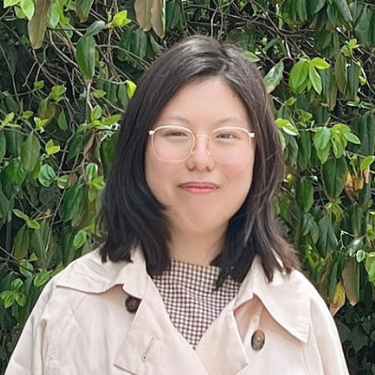Anni Liu imagined dedicating her life’s work to music from an early age. That changed when her violin mentor at the Shanghai Conservatory of Music suggested the benefits of learning more about the sciences, leading her to obtain a degree in preventive medicine at Fudan University. Now, Anni is set to complete Weill Cornell Medicine’s MS in Healthcare Policy and Research program as part of the class of 2022.

Anni Liu
Anni is in the biostatistics and data science track of the MS program, where she sees an intersection between her two areas of interest. “While a musician creates patterns in the form of a melody, a biostatistical scientist searches for patterns in biomedical data,” she said. She hopes to one day locate insightful patterns that improve medical solutions using biostatistics and data science.
The course design, faculty members, and cohort have been major highlights of Anni’s experience in the program. She is grateful for the opportunities to learn and apply both traditional and newer quantitative techniques to real-world biomedical problems. Across her courses, she has found that faculty make many efforts to help students grow in the field and support their career development. Anni is also aware of the role her cohort plays in her graduate education. “I enjoy hearing different ideas that I have not previously considered from my wonderful peers who come from diverse regions and backgrounds,” she said.
Among the course catalog, Biostatistics I with R Lab and Artificial Intelligence in Medicine stand out. They are taught by Dr. Xi Kathy Zhou, associate professor of population health sciences and program director of the biostatistics and data science track, and Dr. Fei Wang, associate professor of population health sciences, respectively. “Biostatistics I with R Lab solidifies my understanding of the fundamentals of mathematics and statistics that advanced computational algorithms build upon, while Artificial Intelligence in Medicine highlights deep learning models that are used to identify complicated patterns in big data,” she said. “The two courses empower me to continue pursuing an elusive biomedical question: Why does variation in immune recovery occur in patients?”
Dr. Zhou has been an important resource beyond the biostatistics course as well. For example, she has been instrumental in Anni’s work to disentangle patients’ omics profiles to better understand the mechanism of obesity-related breast cancers. Dr. Zhou also provided a recommendation for Anni’s new position at Rockefeller University’s Laboratory of Molecular Immunology led by Dr. Michel C. Nussenzweig.
Anni is also appreciative of the mentorship provided by Dr. Paul Christos, associate professor of research in population health sciences. The training she gained in elaborate and effective strategies for statistical consulting has helped her hone her professional communication skills.
While hybrid learning was something to adapt to during the ongoing COVID-19 pandemic, Anni says her time at WCM has been incredible and would choose the program again if given a chance.
Looking forward, Anni hopes to one day run her own lab to develop mathematical, statistical, and computational techniques to further advance the understanding of human immunity.
- Highlights

